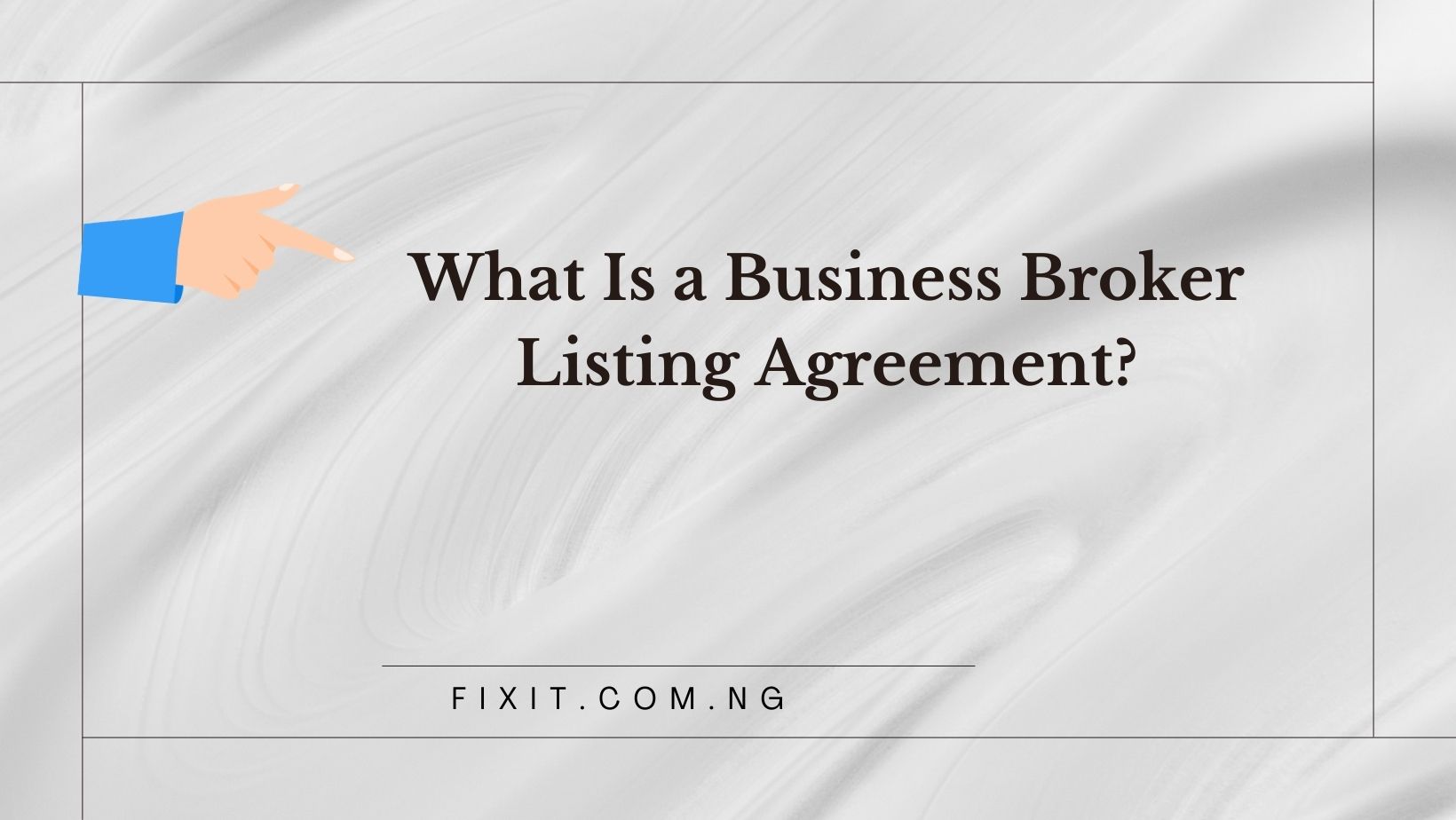A business broker listing agreement outlines the terms under which a professional business broker will market your company for sale. Common contract provisions include an agreed upon term/tail length, commission for procuring buyers and language to address alternative transactions.
As most brokers require an exclusive agreement between themselves and clients to sell your business, it would be prudent to consult an attorney prior to signing this document.
Commissions
The listing agreement details how much commission your broker will be receiving for their efforts in selling your business, typically between 10%-15% of its purchase price.
This agreement also establishes the roles and responsibilities of both parties involved, with business brokers typically providing marketing materials, identifying buyers, and helping with negotiations. If your business includes real estate properties for sale or lease separately at closing.
Additionally, this agreement typically states that no brokerage firm can guarantee the successful sale of your business and may fail to find buyers at all. Furthermore, it often obliges sellers to notify business brokers immediately of any third-party inquiries that arise so they may take measures against double charging and pursue them themselves if necessary.
Business brokers may impose valuation fees, retainer fees or success fees depending on the complexity of each transaction they manage. These charges correspond with their initial valuation of your business’s worth and serve as additional incentives for broker to facilitate an efficient sales process. Consequently, transactions that require extensive due diligence support, complex negotiations or require legal advice tend to incur higher fees from broker.
Advertising
Business brokers generally attract prospective buyers through various methods, such as posting limited information about businesses for sale on their websites and advertising in larger online business-for-sale marketplaces. In addition, they often maintain databases of prescreened buyers who may approach interested parties directly who have expressed an interest in purchasing one of the businesses for sale listed on these marketplaces – all while upholding strict confidentiality measures.
Business owners frequently turn to brokers as a way of saving time and ensuring a fair deal when buying and selling businesses. Brokers are instrumental in the complex process of buying and selling, such as analyzing financials and negotiating with potential buyers. Furthermore, brokers can identify serious prospects while eliminating those that are only pretending.
A brokerage agreement details how commissions payable to brokers will be calculated; these could either be flat fees or percentage of sales price of your business. Furthermore, this document usually contains clauses detailing how expenses related to selling it will be compensated for by brokers.
Sellers should carefully read through the brokerage agreement clause that details their duties and obligations. This section usually details what services your broker promises to perform for you in exchange for their commission payment; typically this would include marketing your business for sale as well as helping facilitate negotiations.
Legal Fees
Business brokers charge fees that depend on the size and nature of your business, such as retainers, valuation fees and success fees (commission due upon sale completion). Fees will differ between firms; ultimately this amount depends on your unique requirements as an entrepreneur.
Your contract will detail a list price for your business, which could be determined using its current financial statements or assessed by a professional broker. As this represents such an integral component of the agreement, it should be carefully assessed.
Your broker will then determine whether or not to work exclusively on selling your company for you; typically they’ll work together for an agreed upon period called the “term” during which time no other professional business brokers can assist in selling it for you.
Contracts also contain a dispute resolution clause, outlining how you and the broker will settle any conflicts that arise throughout the listing process.
Most importantly, your contract will include an indemnification clause whereby you agree to hold harmless Business Broker, its officers, directors, employees, agents, representatives, attorneys, parents and affiliates against any loss, damage, liability or claim resulting from this Agreement or Services provided by Business Broker including attorney’s fees.
Expenses
Business brokers provide access to an expansive network of people looking for businesses for sale or acquisition, and can assist in pinpointing serious buyers with sufficient financial resources. Furthermore, these brokers can market a company for sale effectively in order to increase the likelihood of a smooth transition and favorable prices being received or paid. Furthermore, they possess expertise and connections necessary for successfully navigating all the complexities inherent to any transaction process.
Brokers may charge fees that range from an hourly rate, retainer fee or success fee upon closing of a deal. As some of these costs can be significant, it’s essential that sellers fully understand them before embarking on the selling process.
Brokers may incur expenses related to business valuation, meeting with prospective buyers, preparing marketing materials and facilitating meetings between buyer and seller. Furthermore, brokers can guide clients through the due diligence process, negotiate contracts and assist in closing sales transactions.
Business broker fees may seem complex at first, but they’re generally well worth it for those seeking to sell their business. A professional business broker provides invaluable services that save both time and money in the long run, and is committed to making every effort for a smooth sale within an agreed upon timeline.

